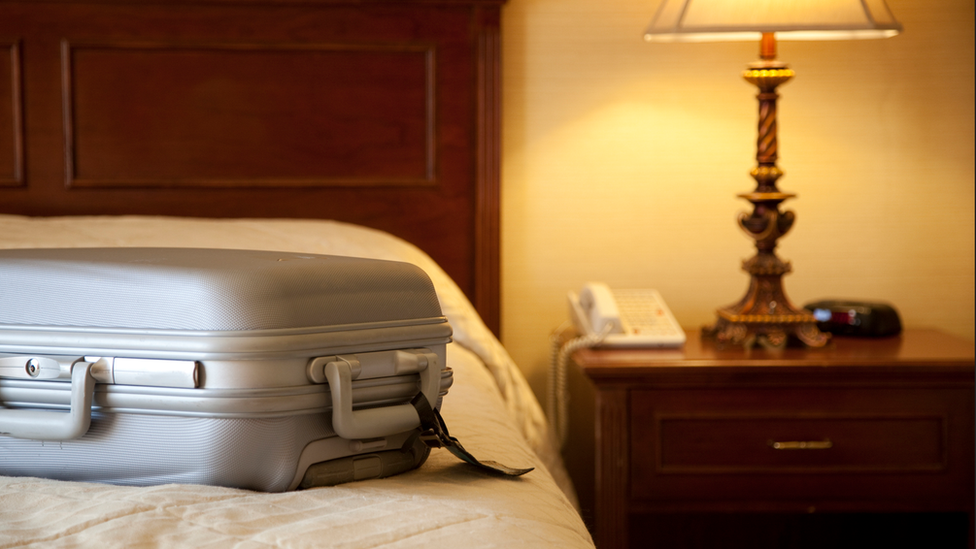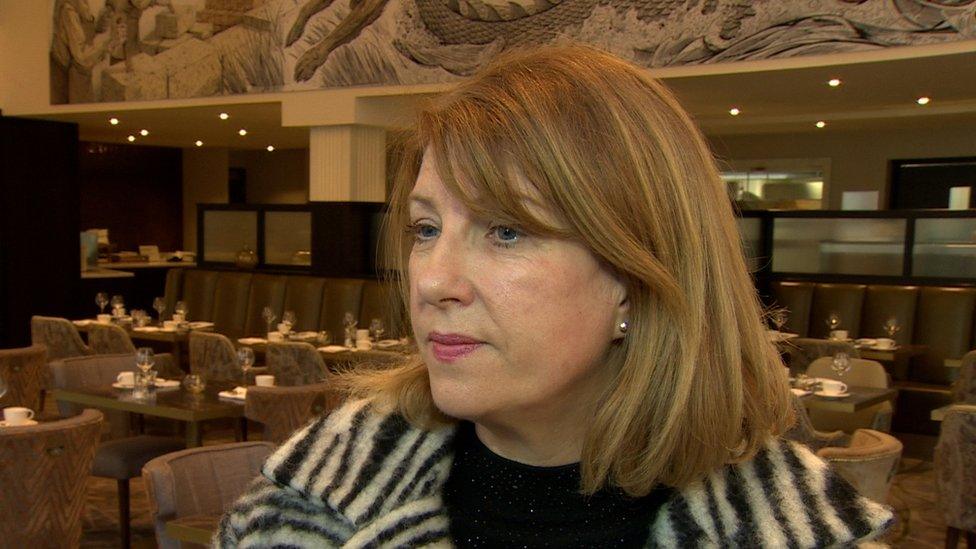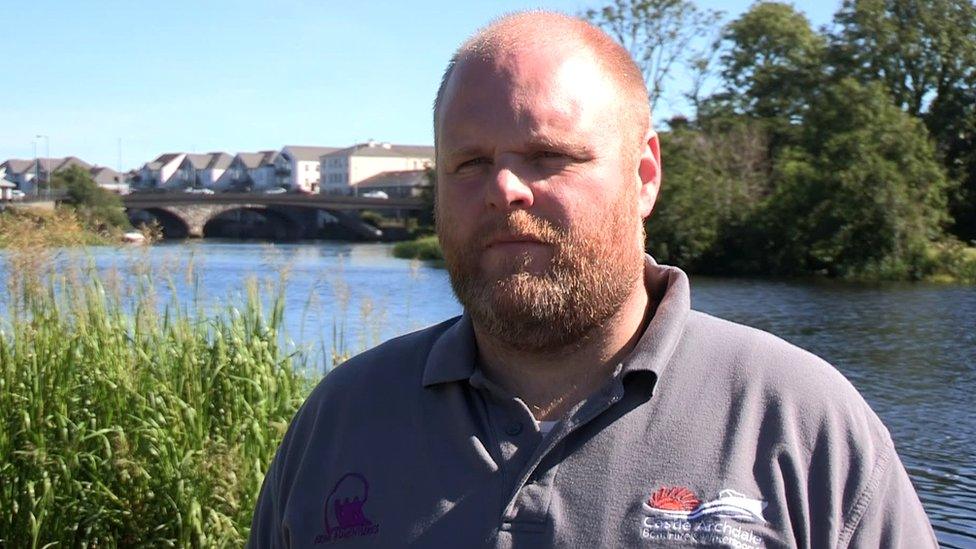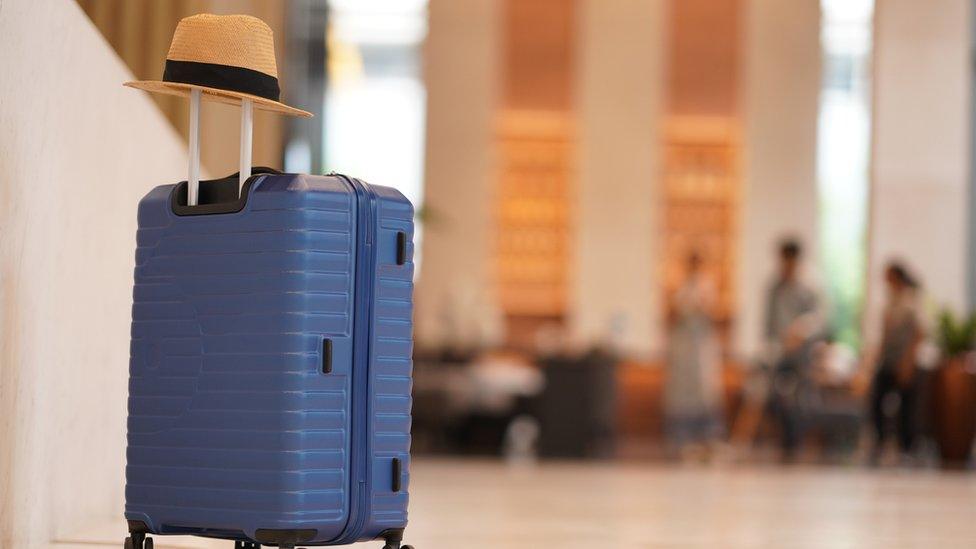Northern Ireland tourism still below pre-pandemic level
- Published
- comments

More people chose to "staycation" closer to home when coronavirus travel restrictions were in place
Tourism in Northern Ireland has still not returned to pre-Covid levels amid cost pressures and competition from the return of international travel.
In 2019, the tourism sector in Northern Ireland hit the £1bn mark, before the pandemic hit in 2020.
When restrictions put people off travelling abroad, more people chose to "staycation" closer to home.
However, now that international travel is back, it means more competition for domestic providers.
Northern Ireland Hotels Federation chief executive Janice Gault said the industry was "about 80% of where we were".
"We can't compare on a similar cost base, June occupancy was slightly less than 2019 but July has been pretty much on a par," she said.
"Up until now we have had a strong summer with lots of events back in June."
She added: "During the week we have noticed some softening from Monday through to Thursday, with people maybe choosing to go abroad for a longer time.
"I think this has been an unfortunate year.
"We have had the war in Ukraine which has driven up energy costs, food costs have increased and we've had significant wage inflation, that's something no one can budget for."
The summer season is crucial for tourism, as it allows the sector to build up its reserves that then keep it going through the quieter winter months.

Janice Gault says energy costs, food costs and significant wage inflation are issues
The rising cost of living is putting pressure on the industry.
On the demand side, many people will not be able to afford to travel.
It is also pushing up costs which will have an impact on profitability.
Peter Bradshaw owns Castle Archdale Boat hire in County Fermanagh, with a range of water activities on offer such as boat hire, kayaks and water bikes.
He said 2022 had been a strong year so far, but they had noticed some visitors are cutting back.
"We are seeing the return of international visitors, which we didn't have for two years because of travel restrictions, you definitely see more people coming from further afield.
"Definitely we are noticing people with the cost of living, they are coming and doing one or two activities rather than three or four, we have introduced a family pass to help people do more, but you definitely notice things a bit quieter in that end of things.
"We have done a bit of price reduction here and there, like off-peak times and making adjustments as required, as any business has to do when things change."
One cost businesses in tourism and hospitality face is VAT.

Peter Bradshaw said 2022 had been a strong year for his boat hire business so far, but they have noticed some visitors are cutting back
Since April, it has been back at 20%, after it was cut to 5% and then 12% during the pandemic.
In contrast, VAT in the Republic of Ireland is 9%.
Mr Bradshaw said VAT coming back "was a big loss, which is difficult because 10 miles across the border VAT is much lower".
"It would be nice to have a level playing field so people can't just go down the road and get something for cheaper down there," he added.
Ms Gault said costs had gone up across the board.
"Car hire has gone up, accommodation costs have gone up and food costs have gone up - that applies to everywhere," she added.
"This year is an anomaly and it's making things very difficult, we've tried to absorb a large number of those costs but some of them we've got to pass on."
Related topics
- Published22 October 2021
